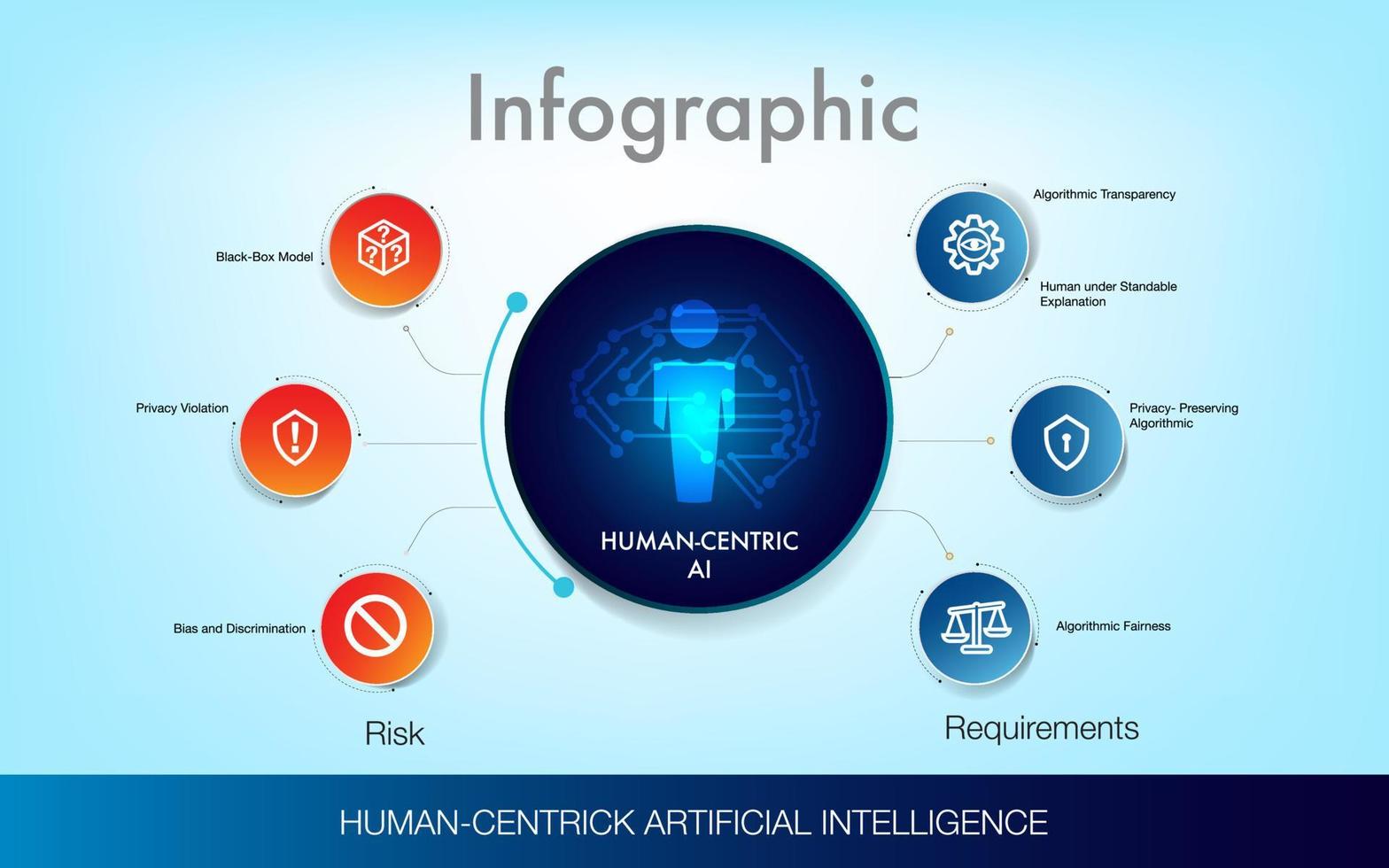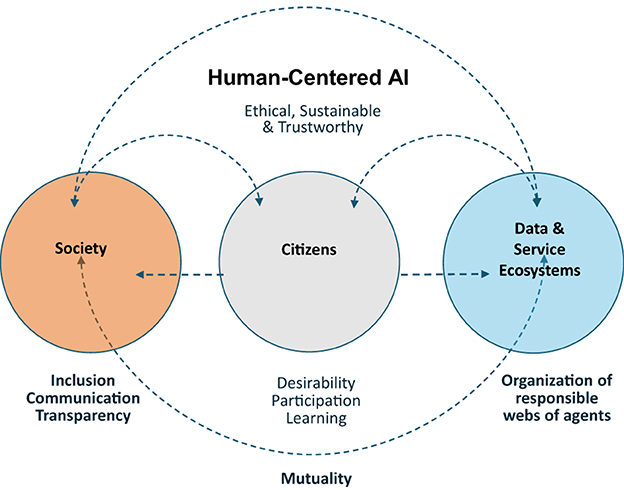Towards a Human-Centered AI Transformation: Redefining the Relationship Between Human Beings and Intelligent Devices
In this paper, titled "In the direction of a Human-Centered AI Transformation: Redefining the Connection In Between Human Beings and Smart Equipments," we dig right into the present landscape of AI, discovering the moral factors to consider in its development. By empowering human-AI cooperation and redefining the duty of AI in culture, we intend to lay out a path towards a more harmonious and useful conjunction between human beings and smart equipments.
Understanding the Existing Landscape
The existing landscape of human communication with smart machines can be best recognized through a detailed analysis of existing AI applications and their effect on different sectors. Synthetic Knowledge (AI) has quickly arised as a transformative pressure across numerous sectors, changing the method we live and function. From medical care and finance to transportation and manufacturing, AI applications have actually penetrated almost every element of our culture.
In medical care, AI-powered formulas are being used to diagnose conditions, forecast person end results, and even aid in surgical treatments. These technologies have the possible to significantly enhance individual treatment, reduce clinical mistakes, and improve total efficiency in medical care distribution.
In financing, AI is transforming the means we make financial investment choices, automate trading, and spot illegal tasks. Artificial intelligence formulas can analyze large quantities of monetary information in real-time, enabling for more exact forecasts and better danger monitoring.
Transport is one more location where AI is making considerable strides - human centric ai. Self-driving autos are coming true, with business like Tesla and Waymo leading the method. AI-powered systems are making it possible for safer and extra reliable transport, lowering accidents and web traffic blockage
In manufacturing, AI is transforming production processes via using robotics and automation. Smart equipments can carry out complicated jobs with precision and rate, bring about increased performance and price savings.
These instances highlight the diverse range of AI applications and their influence on various markets. Recognizing the current landscape is essential for organizations, policymakers, and people to harness the complete capacity of AI while resolving its moral, legal, and societal ramifications.
Ethical Considerations in AI Advancement

Another moral concern is the justness and openness of AI algorithms. AI systems commonly depend on vast quantities of information to make decisions, and if this information is biased or insufficient, it can bring about biased end results. Developers need to ensure that their algorithms are impartial and fair, which they do not perpetuate existing prejudices in culture.

Privacy is additionally a significant ethical consideration in AI growth. AI systems often require accessibility to individual information to function successfully, but this raises worries concerning information privacy and safety and security. Developers need to apply durable privacy actions and make certain that customer data is protected and made use of sensibly.
Lastly, there is an ethical responsibility to make certain that AI systems are not made use of for harmful functions. AI modern technologies have the potential to be utilized for surveillance, cyberattacks, and various other harmful activities. It is essential for programmers to prioritize the development of AI systems that are safe and resistant to abuse.
Humanizing AI: Compassion and Emotional Knowledge
To effectively humanize AI, developers have to consciously cultivate compassion and psychological intelligence in their smart machines. Compassion describes the ability to recognize and share the feelings of others, while emotional knowledge includes the ability to identify, understand, and manage emotions, both in oneself and in others. Integrating these qualities into AI systems can substantially enhance their capacity to engage with humans in an extra significant and natural site link method.
By instilling empathy in AI, designers can create equipments that are capable of responding and recognizing to human feelings. This can be achieved via using all-natural language processing and belief evaluation strategies, allowing AI systems to comprehend the psychological nuances in human interaction. By Visit Your URL accurately analyzing emotions, intelligent makers can much better tailor their actions, offering compassion and assistance when needed.
In addition, emotional intelligence in AI can make it possible for devices to adapt their actions based on the emotional state of the individual. An AI assistant can recognize indicators of stress or despair in a customer's voice and respond with patience and empathy, supplying handy suggestions or words of motivation.
Developers can grow compassion and psychological intelligence in AI systems with the use of artificial intelligence formulas. By training AI versions on datasets that include psychological hints and responses, machines can discover to recognize and suitably react to human emotions. Additionally, recurring study in affective computing and affective neuroscience can give beneficial click here for more understandings right into the growth of empathetic and psychologically intelligent AI.
Empowering Human-AI Partnership
Effective cooperation between human beings and AI can be empowered with the critical assimilation of their respective staminas and capacities. The potential of human-AI partnership hinges on harnessing the distinct capabilities of both events to attain exceptional results. Human beings bring creative thinking, intuition, and contextual understanding, while AI brings computational power, data evaluation abilities, and rate. By combining these toughness, we can create a symbiotic relationship where humans and AI collaborate to address intricate problems, make educated choices, and drive technology.
To empower human-AI partnership, it is vital to develop AI systems that are user-friendly, clear, and explainable. This indicates developing intuitive user interfaces that facilitate smooth communication between humans and AI algorithms (human centric ai). Additionally, AI designs should be transparent, providing customers with understandings into just how choices are made and enabling them to trust fund and verify the results
Furthermore, equipping human-AI cooperation needs continuous training and upskilling of human employees. This entails supplying education and resources that allow people to understand and successfully make use of AI systems. By empowering humans with the understanding and abilities to utilize AI's capabilities, we can ensure a harmonious partnership that makes best use of the potential of both parties.
Redefining the Role of AI in Society
The redefinition of the role of AI in culture requires a extensive and thoughtful examination of its effect and possibility. As AI technologies proceed to advance and end up being extra incorporated right into various elements of our lives, it is crucial to think about exactly how they can best offer culture and deal with the obstacles we face.
One aspect of redefining the duty of AI in culture involves making certain that it is made use of as a tool to increase human capacities rather than replace them. Collective techniques, where people and AI job with each other, can bring about innovative services and better outcomes. This calls for a change in attitude from checking out AI as a danger to embracing it as an important source that can sustain human undertakings.
One more essential consideration is the ethical use of AI. As AI systems come to be more independent and qualified of making independent decisions, concerns occur concerning transparency, justness, and responsibility. It is essential to establish governing structures and honest standards to prevent the misuse of AI and make certain that it aligns with societal worths.
Additionally, the duty of AI in attending to societal difficulties such as medical care, climate change, and poverty ought to be checked out. AI has the possible to add dramatically to these areas by enabling better data analysis, prediction designs, and targeted interventions.
Verdict
In verdict, the partnership in between human beings and smart equipments is evolving in the direction of an extra human-centered AI change. The present landscape needs ethical considerations in AI development to make sure accountable and responsible usage. The humanization of AI, via compassion and psychological knowledge, can boost its capacity to understand and react to human demands. In addition, encouraging human-AI collaboration can result in more effective and reliable results. Eventually, redefining the duty of AI in society can contribute to a future where humans and smart makers interact for the improvement of culture.
In this paper, entitled "In the direction of a Human-Centered AI Change: Redefining the Relationship Between People and Smart Makers," we dive right into the existing landscape of AI, exploring the ethical considerations in its growth. By encouraging human-AI cooperation and redefining the role of AI in society, we aim to outline a path towards a much more advantageous and harmonious conjunction in between people and smart devices.
